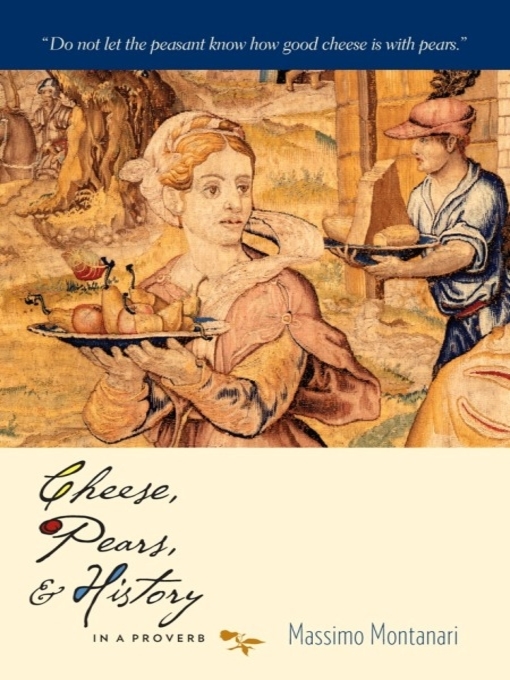"Do not let the peasant know how good cheese is with pears" goes the old saying. Intrigued by these words and their portent, Massimo Montanari unravels their origin and utility. Perusing archival cookbooks, agricultural and dietary treatises, literary works, and anthologies of beloved sayings, he finds in the nobility's demanding palates and delicate stomachs a compelling recipe for social conduct.
At first, cheese and its visceral, earthy pleasures were treated as the food of Polyphemus, the uncivilized man-beast. The pear, on the other hand, became the symbol of ephemeral, luxuriant pleasure-an indulgence of the social elite. Joined together, cheese and pears adopted an exclusive savoir faire, especially as the "natural phenomenon" of taste evolved into a cultural attitude. Montanari's delectable history straddles written and oral traditions, economic and social relations, and thrills in the power of mental representation. His ultimate discovery shows that the enduring proverb, so wrapped up in history, operates not only as a repository of shared wisdom but also as a rich locus of social conflict.
- Available now
- New eBook additions
- New kids additions
- New teen additions
- Most popular
- Try something different
- New Nonfiction Ebooks
- New Fiction Ebooks
- Stars Cook
- See all
- Available now
- New audiobook additions
- New kids additions
- New teen additions
- Most popular
- Try something different
- See all
- Home & Garden
- Sports
- Health & Fitness
- Hobbies & Crafts
- Food & Cooking
- Celebrity
- News & Politics
- Travel & Outdoor
- Family & Parenting
- See all

